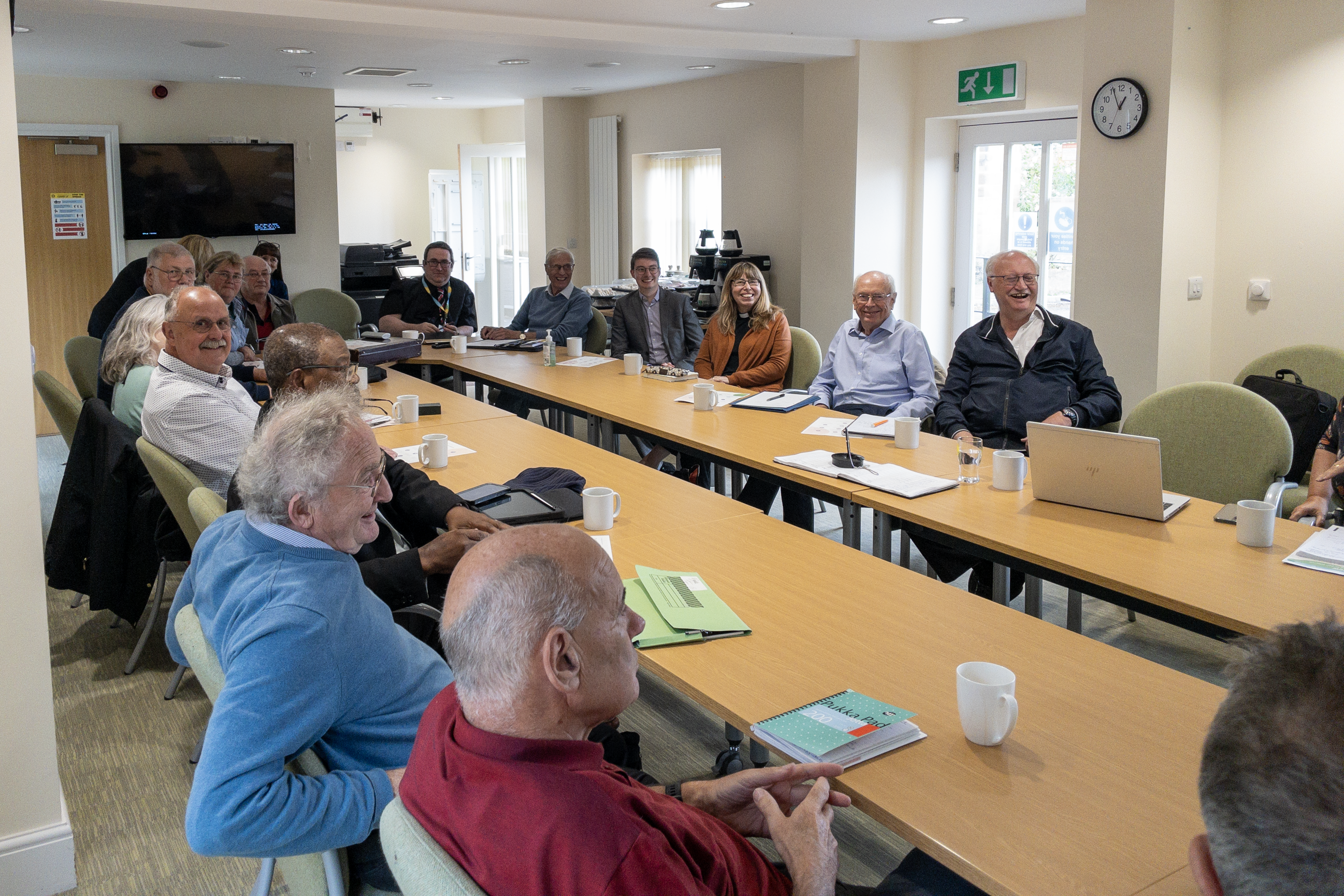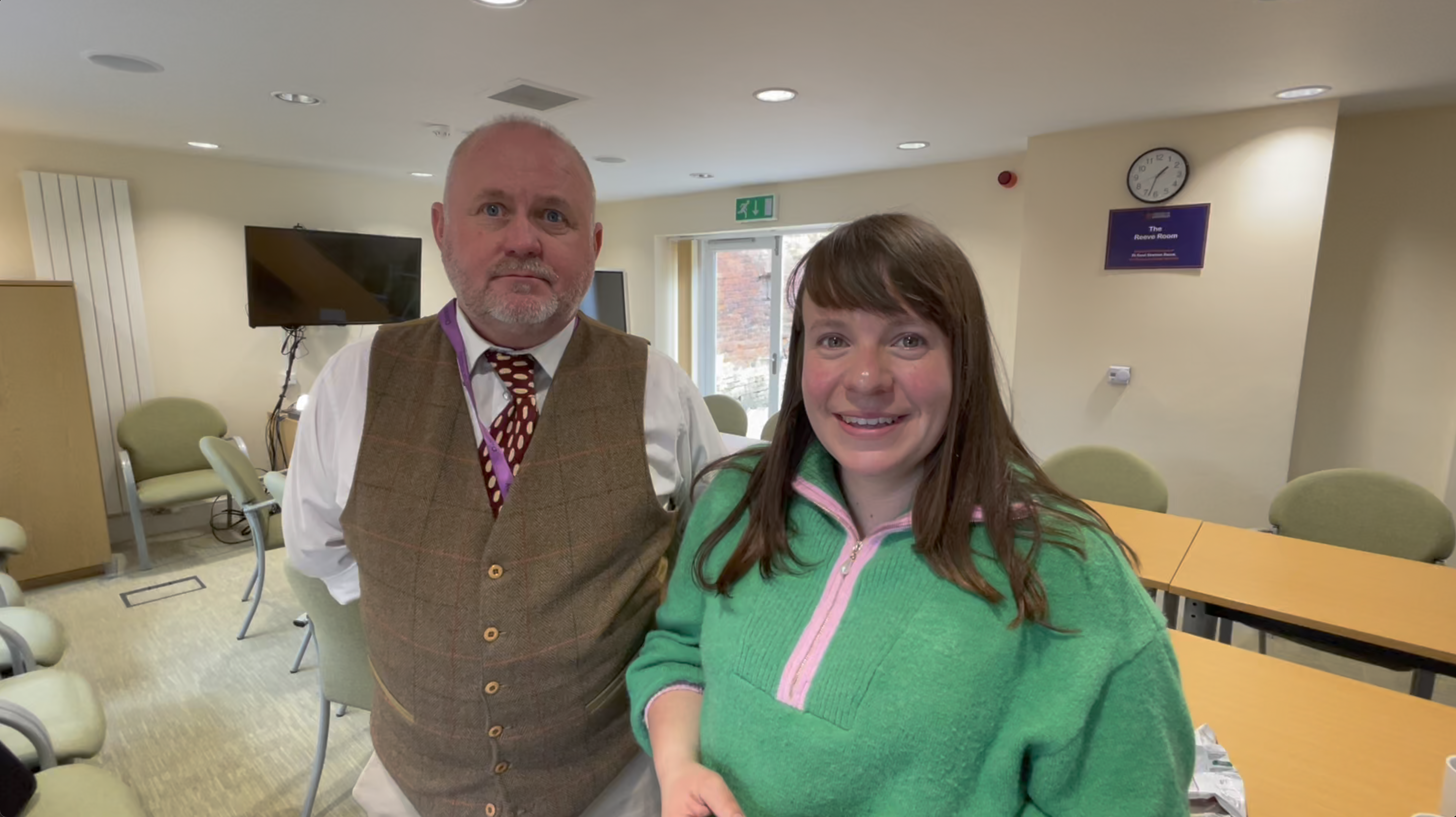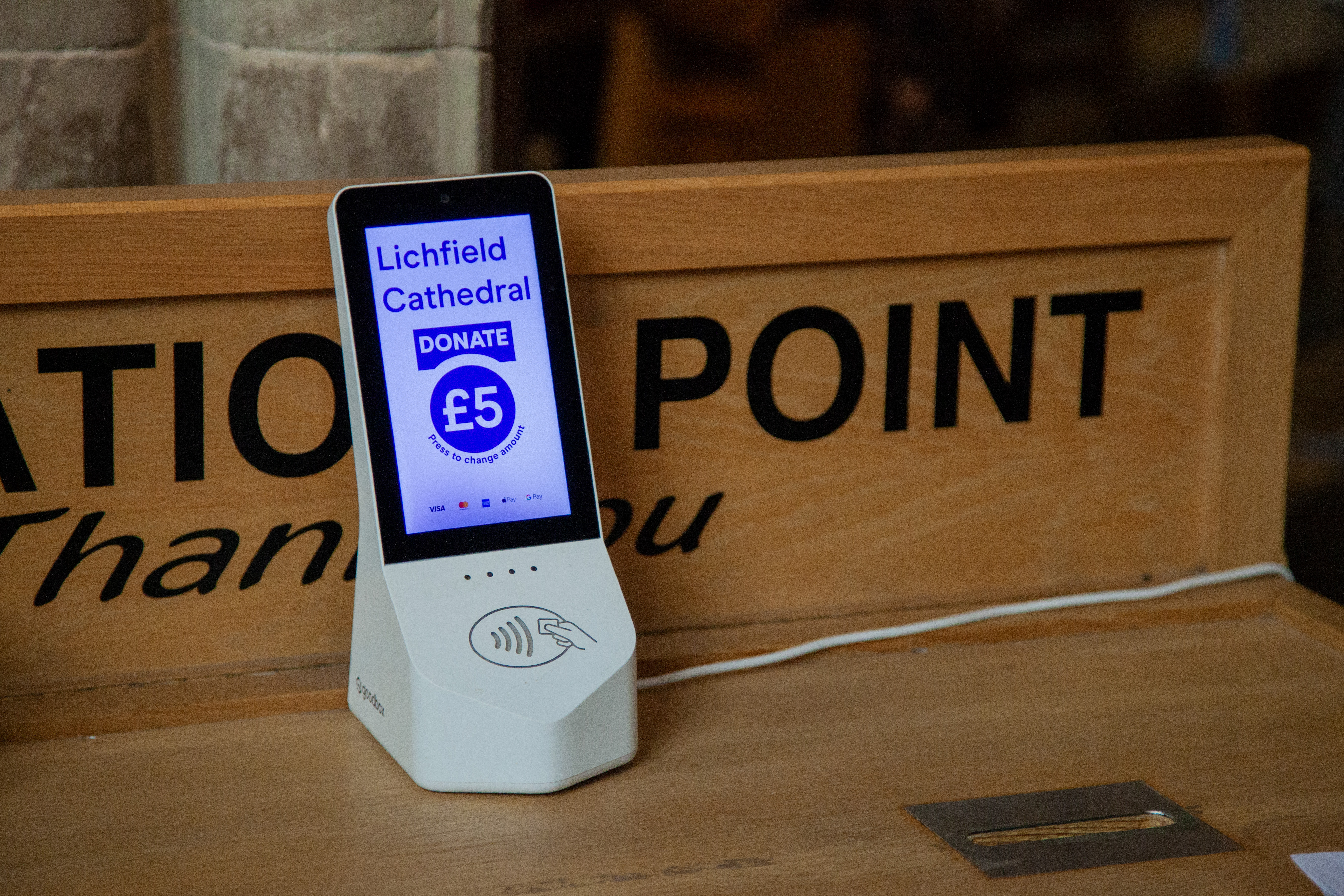
As part of the diocese focus on Generous Hope, around two dozen people gathered at the diocesan offices in Lichfield last week to hear about fresh research into the giving habits of Anglican Christians in England and the latest ways that churches can disciple members to think about and act with generosity and enable visitors who want to donate.
Hannah Silcock, adviser from the National Giving Team and Steve Johnson, Living Generously Adviser in Derby Diocese shared with a group led by the finance team including parish assessors*, clergy and diocesan staff from the mission and communications teams.
Steve said: "I think it's very important that we start from a Biblical perspective. I think it's important that we remember that we've got God at the center of what we do and if we engage with our communities in Mission and in spirituality then we can actually grow generosity as a movement which of God adds to our numbers we will grow financially as well" which echoes the oft-heard mantra of our Diocesan Director of Finance, Jonathan Hill - "If we put mission and ministry first and do it well, finance follows."
 Post-pandemic, finance has become a significant source of concern for congregations, clergy and bishops. Hannah presented some startling statistics from research commissioned by the National Giving Team. "The research that we've done shows that a third of people who tend to regularly give [to charity] don't give to their church and over half of the people who do give haven't been asked to review their giving so there's so much potential for people to kind of give more and be more generous to their church." And yet the research shows that the average Anglican is more middle class, more likely to have benefitted financially through lockdowns and more insulated from the cost of living crisis than the average Briton. But anecdotes from attendees attested to the reality of the parable of the widow's mite - with examples of the immigrant and destitute cared for by parish projects being among the most relatively generous in response.
Post-pandemic, finance has become a significant source of concern for congregations, clergy and bishops. Hannah presented some startling statistics from research commissioned by the National Giving Team. "The research that we've done shows that a third of people who tend to regularly give [to charity] don't give to their church and over half of the people who do give haven't been asked to review their giving so there's so much potential for people to kind of give more and be more generous to their church." And yet the research shows that the average Anglican is more middle class, more likely to have benefitted financially through lockdowns and more insulated from the cost of living crisis than the average Briton. But anecdotes from attendees attested to the reality of the parable of the widow's mite - with examples of the immigrant and destitute cared for by parish projects being among the most relatively generous in response.
Revd Simon Foster is a curate in Lichfield and the diocesan Mission Team leader. "One thing I did not expect was that it was going to give me fire in my belly; the resources that are available now are great, the ideas are great and the practicalities have moved on so much in such a short space of time that I'm going away from this thinking both that I have a challenge to meet, but it's one that I can really help my church and other churches that I meet think about and enjoy tackling."
 Some of the resources reflect changes in technology and culture that come to the fore post pandemic as people become increasingly comfortable with contactless payments. While our pre-lockdown experiments showed potential, churches are increasingly missing out as few people carry cash but a more than happy to give after (or even before!) visiting churches for life events and as tourists. Younger generations in particular are eager to donate and do so willingly when they spy contactless giving terminals or QR codes - requiring hardware that has come down significantly in cost over the past five years and software that can be practically free for parishes. There was good news too, that when preached or reminded, people do review automated giving and are willing to be generous when they can.
Some of the resources reflect changes in technology and culture that come to the fore post pandemic as people become increasingly comfortable with contactless payments. While our pre-lockdown experiments showed potential, churches are increasingly missing out as few people carry cash but a more than happy to give after (or even before!) visiting churches for life events and as tourists. Younger generations in particular are eager to donate and do so willingly when they spy contactless giving terminals or QR codes - requiring hardware that has come down significantly in cost over the past five years and software that can be practically free for parishes. There was good news too, that when preached or reminded, people do review automated giving and are willing to be generous when they can.
The Revd Preb Jo Farnworth, vicar of Central Telford added "One of the things that really surprised me is how simple some of the ways are that can encourage people to give. Thinking back to previous ways of running stewardship campaigns, they have often felt very onerous, people have often run a mile from getting involved! This new way of thinking about encouraging with generosity will simplify my approach to how we can encourage our congregations and those in our fringes to think about responding generously to God."
Julie Jones, CEO of Lichfield Diocese said "There are some sobering statistics about how many committed Christians haven't heard generosity preached and as a result don't give or don't review their giving even annually. But the good news is that we have ancient resources - more Bible verses about generosity and money than any other issue - and modern resources, and when we preach grace and gratitude we see people respond generously."
Jonathan said "Listening to the National Church to discover what has been successful as well as unsuccessful in different dioceses and to have the benefit of quality research was fascinating as well as educational. The advice of simplifying the approach to giving campaigns and the ease of introducing various modern methods to enable committed members and visitors alike makes the task for clergy and PCCs easier than ever.
"It was encouraging to realise that as a diocesan team we already have most of those tools on hand to be shared with every parish that asks. We have gathered further material and to push this out to the benefit of parishes around the diocese, we want some parishes (we already have three) to help us pilot schemes and monitor the success. In addition, if there are any volunteers, lay or clergy who want to help us on this exciting journey please contact the finance department."
There are many Generosity resources on the Church of England website that can be used at any time of year, but many parishes make use of the official Church of England Generosity Week (Sunday 24 Sept - Sunday 1 October) as a good time to focus on our giving back to God and Christ's great commission in parallel sometimes tied into the themes of Harvest.
*Parish assessors are volunteers in the diocese with expertise in helping parishes understand that mission and finance are mutually supportive and encouraging best practice.